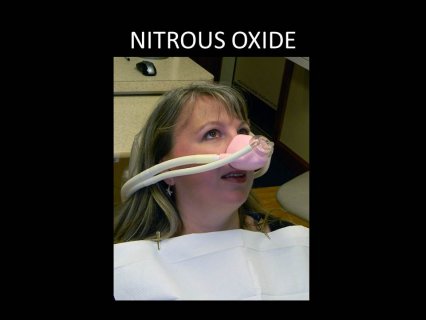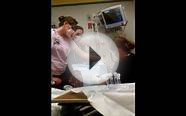
Laughing Gas (Nitrous Oxide)
A debate at this year's Euroanaesthesia meeting in Berlin will focus on whether laughing gas (nitrous oxide) should be banned from the operating room. The debate coincides with an article on the "Current place of nitrous oxide in clinical practice" published in the European Journal of Anaesthesiology, that concludes there is "no clinically relevant evidence for the withdrawal of nitrous oxide from the armamentarium of anaesthesia practice or procedural sedation." The article has been prepared by a special taskforce of the European Society of Anaesthesiology (ESA), which organises Euroanaesthesia.
In the debate, Professor Rolf Rossaint, University Hospital Aachen, Germany, will say he believes nitrous oxide should be banned. "Whereas 30 years ago, nearly every general anaesthesia procedure was performed with nitrous oxide as an adjuvant, a steady decline of its use over the last 15 years has been observed. There are several reasons, which caused the reduction of the usage of nitrous oxide, " explains Professor Rossaint.
First, today there are new well-tolerated short- to ultra-short acting anaesthetic drugs available and modern anaesthetic machines allowing low-flow anaesthesia with the newer and inexpensive inhalational drugs. It has been repeatedly shown that using nitrous oxide is more expensive than the use of newer, well-tolerated anaesthetics. "These calculations were correct even without including the construction costs of the nitrous oxide pipeline systems in a new hospital or operating theatre, and the technical maintenance costs, " says Professor Rossaint.
Professor Rossaint will also say that in the last 15 years we have learned a lot about the possible harmful effects of nitrous oxide. Even when avoiding its contraindications such as presence of closed gas containing cavities or abnormalities of metabolism of vitamin B12, there can be problems related to administration of nitrous oxide (related to the endotracheal tube cuff pressure) which, if not corrected every 15-30 minutes, can cause damage to the throat and/or nerves in patients.
"Furthermore, it has been shown in many large studies that complications such as postoperative nausea and vomiting are increased with the use of nitrous oxide. But not only can there be increased morbidity, there was even a case report series describing technical errors in nitrous oxide delivery causing death in a total of 15 patients, " says Professor Rossaint. He concludes: "There are many reasons to stop the use of nitrous oxide."
In the second half of the debate, the arguments against a ban will be put forward by Professor Daniel Sessler, Cleveland Clinic, Ohio, USA, in his talk "nitrous oxide is an effective and safe anaesthetic".
You might also like








